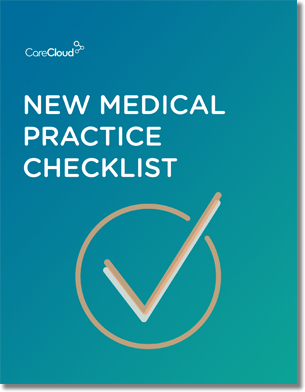There’s been quite a bit of rumbling lately at the legislative level in the world of Meaningful Use. In short, there are some politicians trying to adjust the program, whether because the ONC is flooded with attestation requests or because doctors are having too hard a time reaching core measures. Any of these changes could end up having a huge impact on physicians.
Naturally, this has been a hot topic at the PYP water cooler. So, my colleague Xavier and I decided to chat about it through email and post it for all to see. We got so carried away the conversation had to be split into two articles. Enjoy part one.
Salvador: Alright, so there’s a new Meaningful Use bill going around that supposedly aims to make Meaningful Use requirements less stringent for physicians. Have any thoughts on this?
Xavier: Salvador, always nice hearing from you my health IT compadre.
The bill was introduced to Congress by Tennessee Representative and former nurse Diane Black. She wants to make it easier for physicians to meet Meaningful Use criteria without hindering their ability to provide quality care.
EHR implementation, one of MU’s top priorities, can be extremely costly for certain providers. The proposed bill would create a hardship exemption for small practices and doctors near retirement to avoid a physician shortage.
Now, while I believe total EHR implementation is extremely important for the advancement of medicine, I understand how certain low-income providers could have a difficult time. Maybe Rep. Black has the right idea by not penalizing them?
Salvador: You know, cloud-based EHR systems always come to mind when I hear about the costs of implementing an EHR . The relatively low start-up costs make implementation possible for most small practices, not to mention the other benefits.
And I totally agree with not penalizing physicians near retirement, but I think the whole solo physicians being exempt part should be tackled differently. As a staunch proponent of EHRs, I think they eventually need to be universally implemented.
A good adjustment would be to provide physicians with some sort of financial incentive simply for purchasing a certified EHR and keep the Meaningful Use incentive too. That should lessen the initial financial blow of EHR implementation. Then, they should delay the penalties for one year to give physicians extra time choose the right EHR for their practice.
Hmm… maybe I should run for Congress.
Xavier: We’re on the same page with that sweet universal EHR implementation talk. There are so many different vendor options out there of all shapes, sizes and costs that every provider should be able to attest.
But I still believe those who need help should get it. What I do like about the bill is that it wants to increase transparency and consistency among CMS deadlines and results reporting.
Salvador: No thoughts on my run for Congress? I was kind of hoping you’d be one of my donors since there aren’t any Super PACs backing me yet.
Anyway, transparency is definitely a good thing, but the part of the bill calling for “specialty-led registries” could be even more vital.
Since the inception of Meaningful Use there have been complaints from specialty physicians, and their representing organizations, about having to report measures that have nothing to do with their area of practice.
These registries would be created by and for physicians, with the idea of constructing better fitting measures for specialty physicians.
Xavier: See that’s the thing with politicians… You’re not even in office yet and you’re already digging into my pockets. I’ll buy one-yard sign and be done with it sir.
To get back on topic, the registries are a great idea. With more than 100 different specialties out there it wouldn’t be fair to assess all of them using the same guidelines. Congresswoman Black’s bill seems to do a good job of addressing the key attestation issues that physicians identified.
You know what else really grinds my gears about MU? At the moment, there’s no formal appeals process for Medicare penalties associated with not attesting. I heard this bill wants to do something about that too.
Salvador: Yeah, it’s apparent that not everyone is on board with Meaningful Use, or the direction health IT is heading in the U.S. for that matter. Just check out this recently released whitepaper from six GOP Senators. Those guys definitely aren’t happy with HITECH.
Speaking of unhappiness, I don’t think EHR vendors are going to be happy with the ONC now that they’re trying to introduce Meaningful Use certification fees to provide an “assured funding base” for their programs. I’m curious to see how that’s going to go over.
Check back on Tuesday for the conclusion of our Meaningful Use discussion.

Do you know what you need when setting up a new medical practice?



